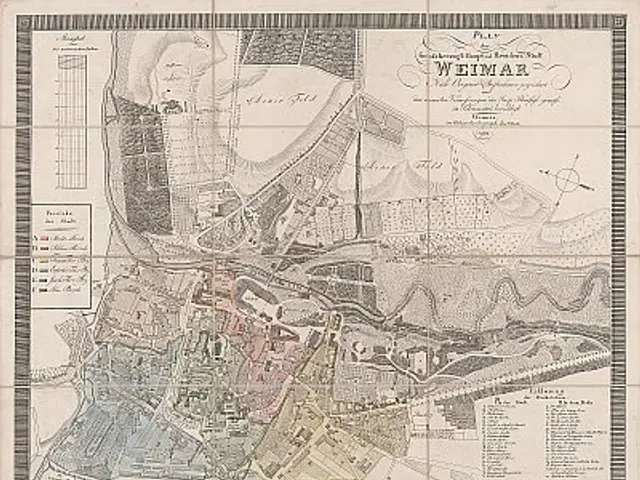Airbus reveals PioneerLab, a twin-engine aerial research facility
Airbus Helicopters' PioneerLab is a groundbreaking technology demonstrator, built on the H145 platform and designed to push the boundaries of sustainable, autonomous, and eco-friendly helicopter technology. The project, based at Airbus Helicopters' Donauwörth site in Germany, is part of the company's commitment to pioneering cleaner, smarter helicopter technologies[1][2][3].
The flight-testing campaign for PioneerLab, which commenced in mid-2025, has already seen promising progress in operating its innovative systems[1]. Key focus areas for PioneerLab include:
- Emissions reduction: By utilising sustainable aviation technologies such as hybrid-electric propulsion, bio-based materials, and potentially hydrogen fuel cell components, PioneerLab aims to contribute significantly to the decarbonization of helicopter operations. This aligns with Airbus’s broader sustainability goals in aerospace[4][5].
- Increased autonomy: PioneerLab integrates advanced autonomous or semi-autonomous flight technologies designed to be operated by a standard helicopter crew. This includes testing systems for crewed-uncrewed teaming and autonomous operation readiness, verified in various flight tests with H145 helicopters[1][2].
- Bio-based materials integration: Airbus is spearheading circular economy initiatives in aerospace, including increased use of bio-based and recyclable materials in aircraft design. PioneerLab serves as a platform to trial structures and components made from these materials, reducing environmental impact and advancing material circularity in aviation manufacturing[5].
In addition to these focus areas, PioneerLab is also exploring the integration of the latest digital technologies into the aircraft's flight control system and associated sensors to increase autonomy and safety during critical flight phases such as take-off and landing[6]. The rotor strike alerting system is the first technology being tested on PioneerLab during its current flight campaign[7].
The PioneerLab's hybrid electric propulsion system and aerodynamic improvements are expected to result in a fuel reduction of up to 30% compared to a conventional H145[8]. This is a significant step towards more sustainable helicopter operations.
PioneerLab is partially co-funded by the BMWK, the Federal German Ministry for Economic Affairs and Climate Actions through its national research program LuFo[9][10]. The company's FlightLabs provide agile and efficient test beds to quickly test technologies, supporting its strategic innovation portfolio and the maturation of technology for future platforms[11].
In summary, PioneerLab represents a crucial step in transitioning conventional twin-engine helicopters to more sustainable, autonomous models through innovative propulsion, advanced materials, and flight system enhancements. With flight demonstrations successfully underway as of mid-2025[1][4][5], Airbus Helicopters is set to lead the way in developing cleaner, smarter helicopter technologies based on proven platforms like the H145.
- The integration of advanced autonomous or semi-autonomous flight technologies in PioneerLab, such as crewed-uncrewed teaming and autonomous operation readiness, aligns with Airbus's focus on finance and innovation in the aerospace industry.
- By utilizing sustainable aviation technologies like hybrid-electric propulsion and bio-based materials, PioneerLab's goal to contribute significantly to the decarbonization of helicopter operations demonstrates Airbus's commitment to finance and technology in the pursuit of a greener future within the finance and aerospace industries.








